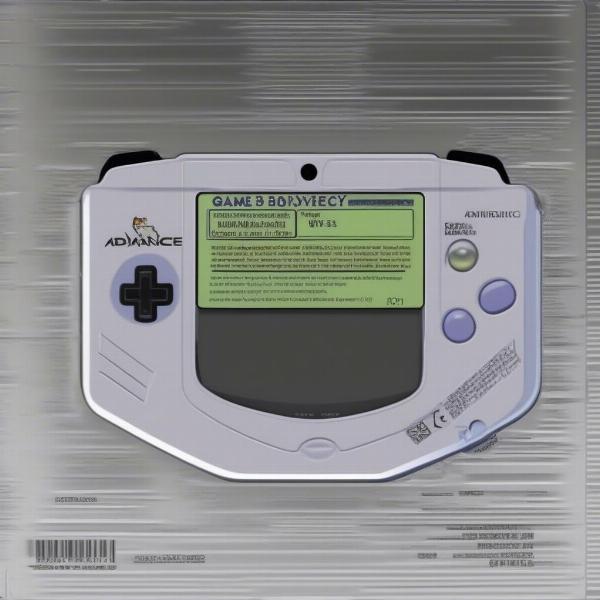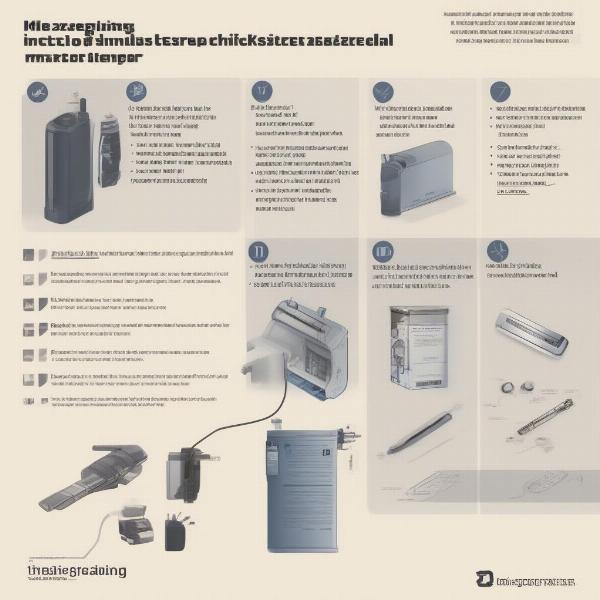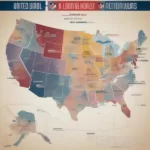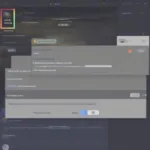Knowing How To Tell If A Gba Game Is Fake is crucial for any collector or enthusiast. Counterfeit cartridges flood the market, and falling victim to a scam can be frustrating and costly. This guide will equip you with the knowledge to identify fake GBA games and protect your investment.
Examining the Cartridge
The first step in authenticating a GBA game is a thorough physical inspection of the cartridge. Genuine cartridges have a specific look and feel that counterfeiters often struggle to replicate perfectly.
Checking the Label
- Look for inconsistencies in the Nintendo logo: Fake cartridges often have a slightly different font, size, or placement of the Nintendo logo. Compare the logo to images of authentic cartridges online.
- Examine the text and graphics: Blurry, pixelated, or misaligned text and graphics are red flags. Authentic labels are crisp and clear.
- Check for spelling errors and grammatical mistakes: Counterfeiters often overlook these details.
- Feel the label: Genuine labels have a slightly textured feel. Fake labels may feel smooth or cheap.
 Inspecting a GBA Cartridge Label for Authenticity
Inspecting a GBA Cartridge Label for Authenticity
Inspecting the Cartridge Shell
- Observe the plastic quality: Authentic cartridges are made of high-quality plastic that feels sturdy and durable. Fake cartridges may feel flimsy or brittle.
- Check the color and finish: The color of a genuine cartridge should be consistent and even. Fake cartridges may have uneven coloring or a cheap-looking finish.
- Look for molding defects: Seams, gaps, or rough edges are often signs of a counterfeit cartridge.
Examining the PCB
If you’re comfortable opening the cartridge, examining the printed circuit board (PCB) can provide further evidence.
- Look for the correct markings: Genuine PCBs have specific markings and codes. Compare these to images of authentic PCBs online.
- Check the solder points: Messy or poorly soldered connections are a sign of a counterfeit cartridge.
Internal Analysis: Digging Deeper
Beyond the physical aspects, there are other ways to determine if a GBA game is fake. These methods require a bit more effort but can offer conclusive proof.
Comparing ROM Information
Using a specialized device or software, you can dump the ROM data from the cartridge and compare it to a known good dump. Any discrepancies indicate a fake.
Consulting Online Databases
Several online databases catalog information about GBA games, including ROM checksums. Comparing the checksum of your cartridge to the database can confirm its authenticity.
Avoiding Common Pitfalls
- Beware of unbelievably low prices: If a deal seems too good to be true, it probably is.
- Be cautious of sellers with little or no feedback: Check seller ratings and reviews before making a purchase.
- Don’t rely solely on photos: Photos can be deceiving. Ask the seller for detailed information about the cartridge.
 Checklist for GBA Game Authenticity
Checklist for GBA Game Authenticity
Beyond the Basics: Advanced Authentication Techniques
For those serious about collecting, advanced techniques like comparing the internal components and analyzing the ROM code can provide definitive answers. However, these methods require specialized knowledge and tools.
What to Do If You Suspect a Fake
If you suspect you’ve purchased a fake GBA game, contact the seller immediately and request a refund. If the seller is unresponsive, report them to the platform you purchased the game from.
Conclusion
Learning how to tell if a GBA game is fake is an essential skill for any collector. By carefully examining the cartridge, comparing ROM information, and consulting online resources, you can protect yourself from counterfeit games and ensure that your collection consists of only authentic titles. Remember, vigilance is key when buying retro games. Don’t hesitate to ask questions and thoroughly inspect any potential purchase. Knowing how to tell if a GBA game is fake empowers you to make informed decisions and enjoy the world of retro gaming with confidence.
FAQ
- What is a ROM checksum? A ROM checksum is a unique numerical value calculated from the game’s data, used to verify its integrity.
- Where can I find online databases for GBA game information? Websites like No-Intro and DAT-o-MATIC host comprehensive databases of ROM information.
- What should I do if a seller refuses a refund for a fake game? Report the seller to the platform you purchased from and consider filing a dispute with your payment provider.
- Are all reproduction cartridges fake? Not necessarily. Some reproductions are clearly labeled as such, while others attempt to mimic authentic cartridges.
- How can I tell if a sealed GBA game is fake? Examine the shrink wrap for inconsistencies and compare the box and label to images of authentic sealed copies.
- Are fake GBA games harmful to my console? While most fake cartridges are harmless, some poorly made ones could potentially damage your console.
- Is it illegal to buy or sell fake GBA games? Selling counterfeit games is illegal, while buying them falls into a gray area depending on the jurisdiction.

